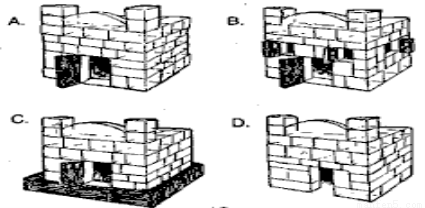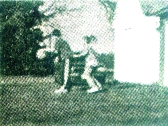题目内容
When my friend, Li Hua, came to Wangjiang Senior High School for the first time, he was ______, remarking, “What an amazingly beautiful school!”
A.travelled around B. turned around
C. looked around D. showed around
D
【解析】
试题分析: 句意:当我的朋友李华第一次来望江高中的时候,别人他领着在校园里转了转,他赞叹道,“多么美丽的校园啊“。A. travelled around 到处旅游;B .turned around 转身; C. looked around 环顾四周;D. showed around领着某人到处转。
考点:考查动词短语

练习册系列答案
相关题目

